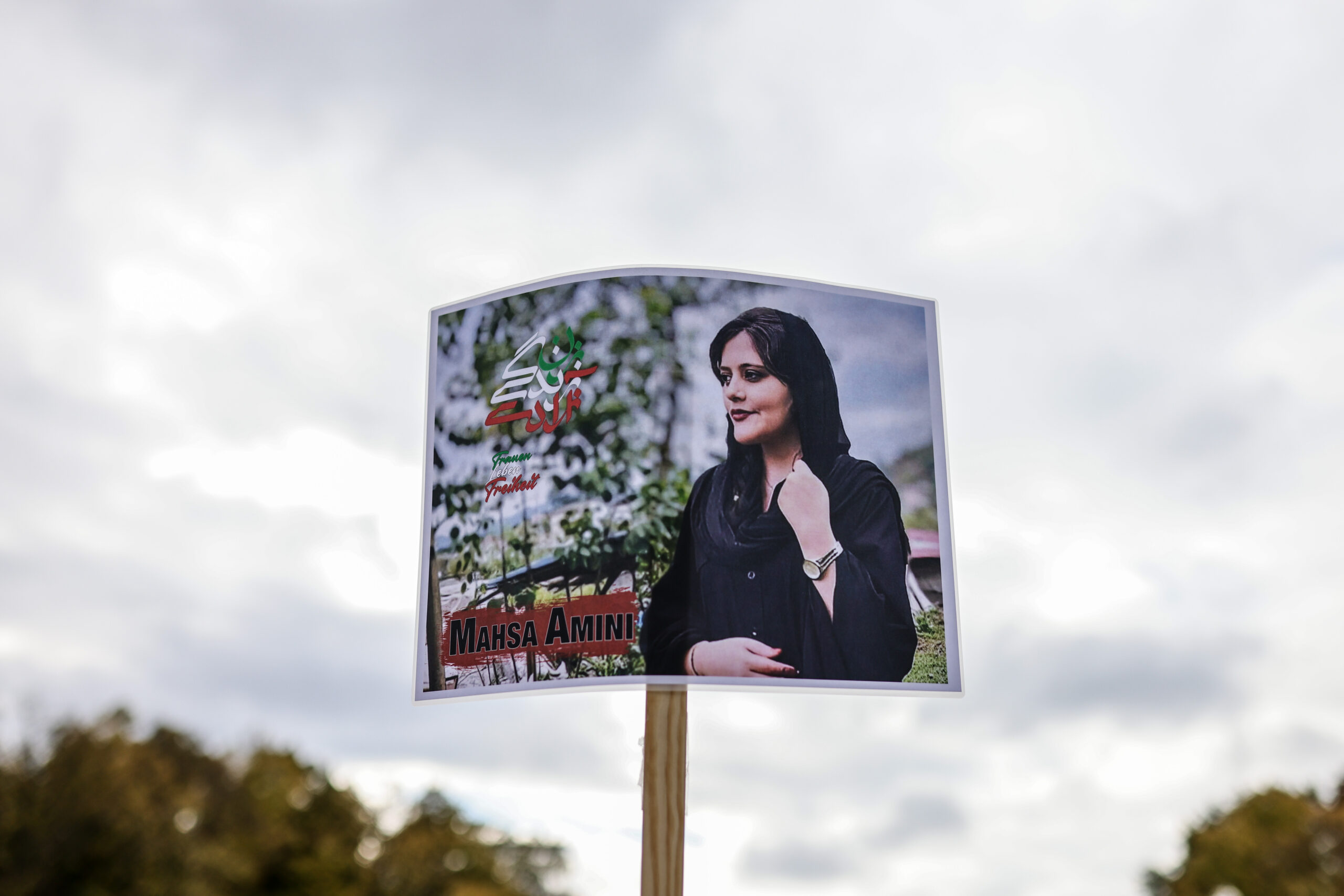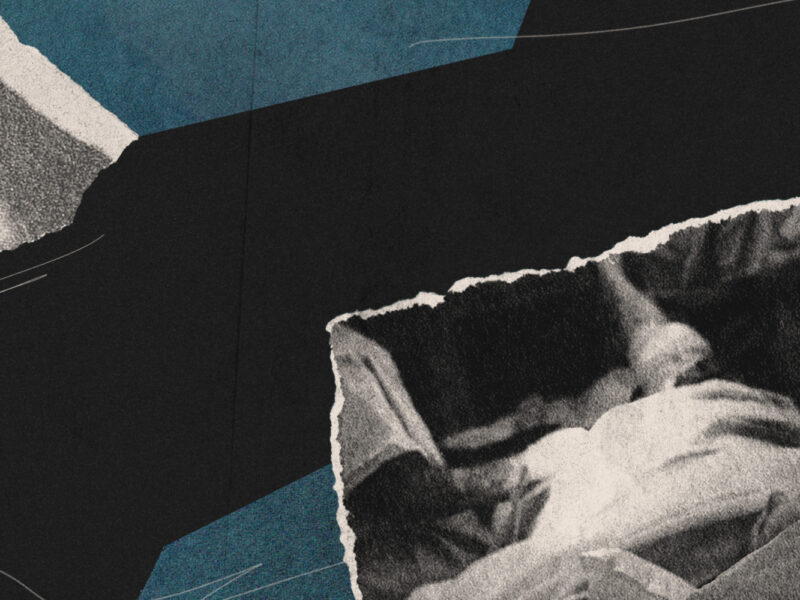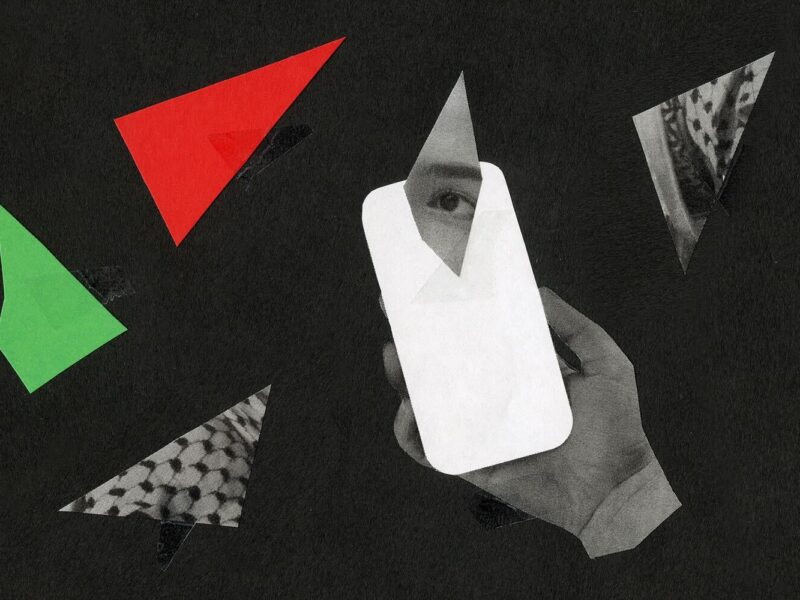Why the protests in Iran are about more than just women’s rights.
Zan. Zendegi. Azadi.
Woman. Life. Freedom.
This is the rallying cry on the streets of Iran as the people clamor not just for women’s rights and justice for Mahsa Amini, but for a different world order—for the right to live under conditions of their own making.
On September 16, 2022, 22-year-old Amini died in the custody of Iran’s “morality police,” who (allegedly) beat her to death for inappropriately wearing “hijab,” or the veil. In direct response, the Iranian people have taken to the streets to protest not just gender violence, but decades-long violences of empire that survive in Iran despite the Islamic Republic’s break with the West. While galvanized by Mahsa’s murder, these protests highlight accruing grievances against the Islamic regime, as well as an empire that birthed and underwrites the state’s terror tactics.
As those of us in the West begin to make sense of Iran’s senseless state violence, we must refrain from pathologizing Islam as the source of this violence, or the veil as a sign of oppression that revokes women’s agency. We must also be careful not to reproduce the colonialist logic whereby we task ourselves, as “good liberal subjects,” with “saving” these brown women from brown men, as cultural anthropologist Lila Abu-Lughod warns.
This is not the first time that Iranian women have used the veil—in other words, gender politics—to mobilize a demand for the people. In 1979, at the height of what was then an anti-imperialist uprising, Iranian women donned the veil not because they wanted to give up their agency, but because they wanted to take it. These women had suffered for years at the hands of a puppet government that imposed Western standards of being and doing and knowing, including but not limited to mandatory unveiling—obscuring their lived experiences as a people who want to know themselves outside of the West’s phallic gaze.
As the handmaiden of empire, this gaze pretends to “know” the people it Others, making Iranians, in this case, the West’s antecedent and foil; a people in need of Western patronage and intervention in order to animate their political will. But the women of Iran are not awaiting our verb to make their demands known and felt. Neither are the Iranian children who sing about the possibility of “enghelab”—revolution—as they join their teachers to burn effigies of the Ayatollah.
Today, Iranians across gender, racial, ethnic, religious, and class lines are risking their lives in refusal of what iconic feminist scholar bell hooks describes as “imperialist white supremacist capitalist patriarchy.” Even as the state’s violence is totalizing, these women and children and those who stand with them courageously and collectively dream of an Otherwise. And it isn’t the first time: Jalal Al-e Ahmad, whose writings galvanized the 1979 revolution, called the Iranian state’s obsession with emulating the West a disease, which he termed “Gharbzadegi,” or Westoxification. He implored Iranians to seek alternative modernities outside of imperialist white supremacist capitalist patriarchy’s phallic, penetrating violence, so that they might make their own lives (and ours) matter. Indeed, the revolution that the Iranian people sought then and continue to seek today cannot be contained by a demand for gender justice alone.
I have often wondered, in the hour of bell hooks’ passing, what she might say about the uprisings in Iran. She argued that feminism is for everybody; in other words, that feminism helps us understand how society and its dis/contents function. In her final years, hooks expressed concern that feminism is dying in today’s society. As her friend and confidant, I would like to think that the protests in Iran today would give her hope, because Iranian women and their co-conspirators are strategically leveraging feminism, using a critique of patriarchy to challenge empire.
Shervin Hajipour’s song “Barayeh,” described by popular media as the “anthem” of Iran’s protests, enumerates many of these intersectional violences, and how they animate the Iranian government’s iron fist. The people are protesting, Hajipour writes, “for the child laborer and [for] his dreams”; he adds, rather poetically, that they are also protesting for a crumbling economy, for the imprisoned, for the polluted air, for the dying trees, for the extinction of Persian cheetahs, and for “the murdered and innocent forbidden street dogs.”
Interestingly, rather than get caught up in the humanist exceptionalism of Western empire, Iranians protesting on the streets today know that revolution for their people is impossible without a change in the valuation of life. Their demand is not that all lives matter, but rather, that all life—human and non-human—matters.
What’s happening in Iran today isn’t (just) the stuff of gender violence, which is a Western import, anyway. It is about survivance in the face of the imperialist white supremacist capitalist violence that remains in Iran. It is about poverty. It is about Western sanctions that make medical care impossible. It is about, as political theorist Michel Foucault wrote in a November 1978 article for the Italian daily Corriere della serra, “breaking away from…global hegemonies.” It is about a people who, “with bare hands who want to lift the fearful weight, the weight of the entire world that bears down on each of us, but more specifically on them, these oil workers and peasants at the frontiers of empire.”
In “Barayeh,” Hajipour goes on to describe the protests as a revolution for “the embarrassed fathers with empty hands,” for “the missing and murdered kids,” for “the students and their future,” for “the Afghan kids.” His list is long, because, as Foucault notes, Iranians are clamoring for all of us. While Iranian women and girls are certainly leading this charge, there has been no shortage of men who stand with them or, indeed, who follow their lead, understanding that the feminism these women employ to clamor against patriarchy will better their living conditions, too.
What we’re seeing today is a long history of Iranians demanding a freedom with empty hands, for the world that suffers, still, because—as hooks implores—imperialist white supremacist patriarchy devastates all of our living conditions.
Let us stand with Iranians now as they stand with us, as they bear this weight: the “fearful weight…of the entire world.”
This piece has been adapted from a speech given by M. Shadee Malaklou at a vigil hosted by the bell hooks center.



